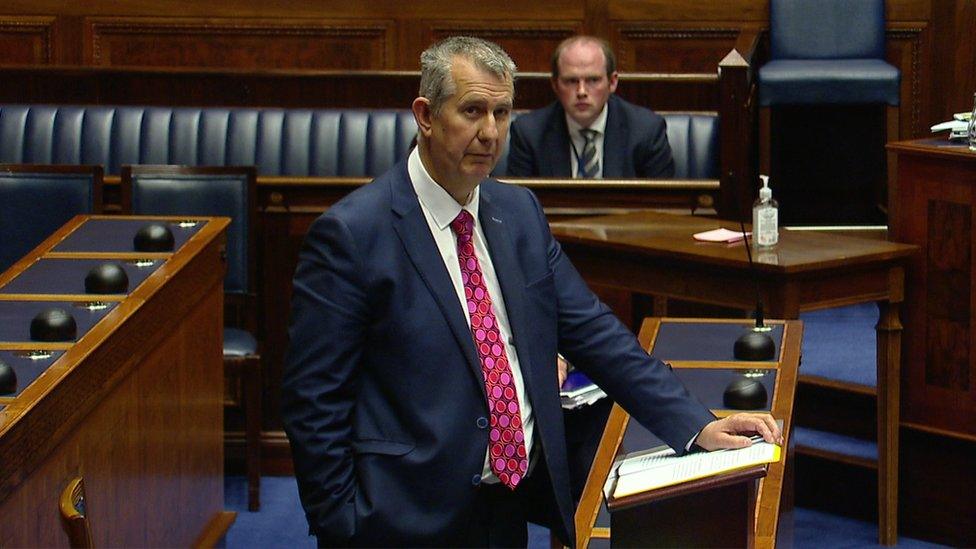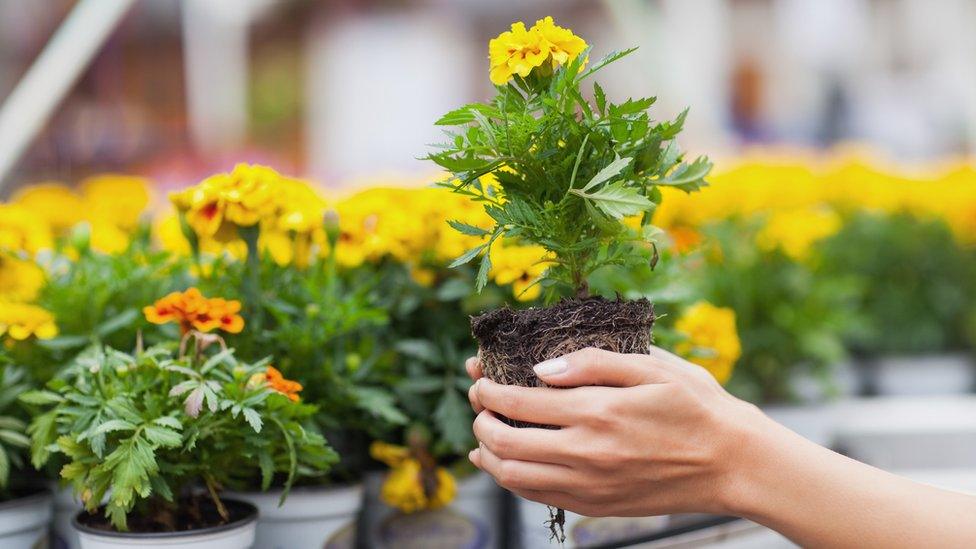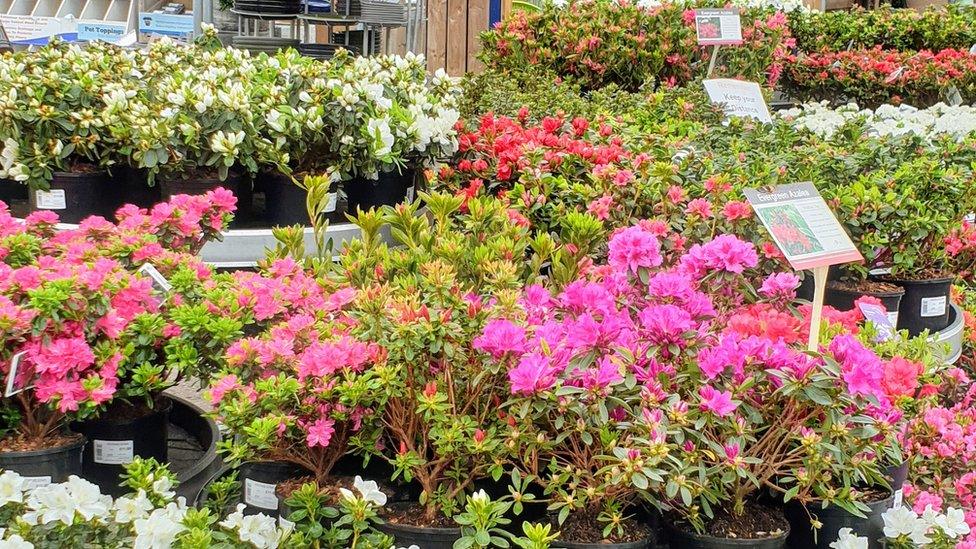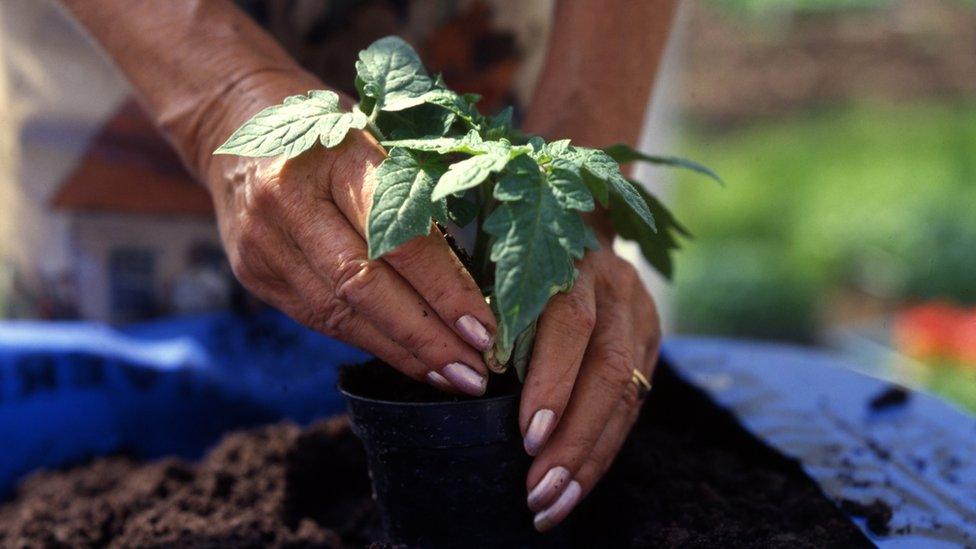Brexit: Poots calls for 'immediate action' on plant problems
- Published

The NI agriculture minister has asked his counterparts in London and Dublin to take a joint approach to post-Brexit problems in the horticulture sector.
NI is still in the EU's single market for goods while the rest of the UK is not.
That means plants being sold from GB to NI are now subject to onerous new checks and controls.
Some common species of plants and trees are also banned from being moved from GB to NI.
Edwin Poots said that the NI Protocol is preventing "the marketing in NI of many plants, plant products and vegetable seeds from Great Britain that are of significant importance to the agriculture and horticulture sectors".
"This is an urgent issue and will have significant impacts on important NI and Republic of Ireland trade.
"That is why I have written to both the UK Secretary of State George Eustice and Irish Agriculture, Food and Marine Minister, Charlie McConalogue to raise these concerns for immediate action."
A spokesperson for the Department for Environment, Food and Rural Affairs said: "We are working closely with the horticulture industry to ensure they can take advantage of the opportunities leaving the EU brings, and overall businesses are adjusting well to the new rules and continue to trade effectively.
"Alongside other measures, we have put in place the Movement Assistance Scheme (MAS) to support and assist traders moving plants, plant products, and agrifood from GB to NI - meaning that businesses do not face new direct costs from certification requirements."
Businesses in GB that are sending plants to NI must obtain a plant health certificate from a professional plant inspector.
The government is covering the cost of those certificates, but it is a time consuming process.

Details of the shipment must also be uploaded to an EU IT system known as Traces NT, at least 24 hours in advance of its arrival in NI.
A ban on GB seed potatoes being sent to NI was highlighted before Christmas, but there are prohibitions on a wider range of products which the EU considers high risk.
These include privet hedge plants, English Yews and Elm trees.
Soil is also banned from being sent from GB to NI but other lower -risk growing mediums like pure peat are permitted.
Some GB growers have stopped supplying NI customers due to the new processes.
Related topics
- Published24 December 2020

- Published24 January 2021

- Published22 January 2021
